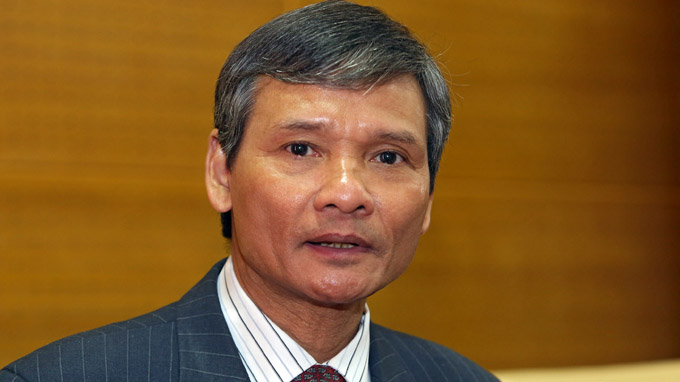Vietnam needs to set up necessary preconditions for the revival of the economy, as the local economy still faces many challenges in 2014 though all macroeconomic indicators improved in 2013, Truong Van Phuoc, vice chief of the National Financial Supervisory Commission (NFSC), told Tuoi Tre.
"The main problem of the local economy is a weakened aggregate demand. So something should be injected into the ‘body’ to make it stronger, especially the real estate market. The revival of the realty market will create a spillover effect to many other sectors," he said.
“In my opinion, the necessary preconditions can be considered as a ‘Battle of Dien Bien Phu’ in economy” he added.
The issue “was mentioned quite loudly and clearly in an online meeting on socioeconomic situation last week in which the government stressed that the door for foreigners to buy local realty projects should be widely opened.”
“We've gone through many difficulties during the past few years, but the things we learned from those bitter lessons are that we are increasingly becoming more sensitive, more flexible, wiser and more experienced.”
“Rising unsold stocks, more layoffs and increasing unemployment rate, stagnant capital outflows from banks are among the prices we have paid, which many countries also have already paid in their road to economic development.”
Regarding the outline of the “Battle of Dien Bien Phu in economy” campaign, Phuoc said policies to allow foreigners to buy real estate should come into life as quickly as possible, right from the beginning of the first month of 2014.
In addition, the flow of money from state's investments and bank credit into the market must be coordinated as soon as possible in a harmonious way so that they can cause a certain impact right away which can trigger the capital outflow from the private sector.
The breakthroughs in the investment policy of the state will result in increasing aggregate demand, or higher economic growth on the platform of stabilized inflation of 6-7 percent which has been maintained in the last 2 years.
It is important that the process should be fast and strong enough to create a higher expectation for the economic growth.
The 6.04 inflation rate in 2013 was achieved by the harmonious combination of many other factors – including 10-percent increase in money supply, a 1-percent Vietnamese dong devaluation, and a 15-percent rise in export revenue.
Regarding the public concerns that the prices of local realty projects are not right currently, as they are too low compared to a few years ago, Phuoc said though many are considering selling at such prices means selling national assets cheaply, the problem should be viewed in another perspective.
“What foreign investors have taken from Vietnam, after decades of pouring money both directly and indirectly into the country? Well, they channeled their capitals in Vietnam, and they brought profits back home, a fair game.”
“So, through the sale of real estate to foreign investors, the biggest thing we get is that bad debt of the local banking system will gradually be tackled. In fact we own a number of bad debts which are backed by sound collaterals.”
“In addition, once foreign money pours in, it will stimulate local capital outflow into the sector - a real kick which can be seen as an important breakthrough in policy.”
“A very clear and convincing signal to the market that aggregate demand will increase will translate into a higher economic growth.”
“When bad debt is tackled, the banks will boldly lend more to the economy. When businesses can borrow more, they can produce more, thus making more profits and pay more taxes to the state budget.”
“As it happens, there will be more public investment which will help lift up economic growth, which will ensure the profit prospect for local businesses and stimulate them to invest and produce more.”
“In general, all of the aforementioned processes, the spillover effect from the right policy in allowing foreigners to buy local houses, will hasten the economic recovery process.”


















































